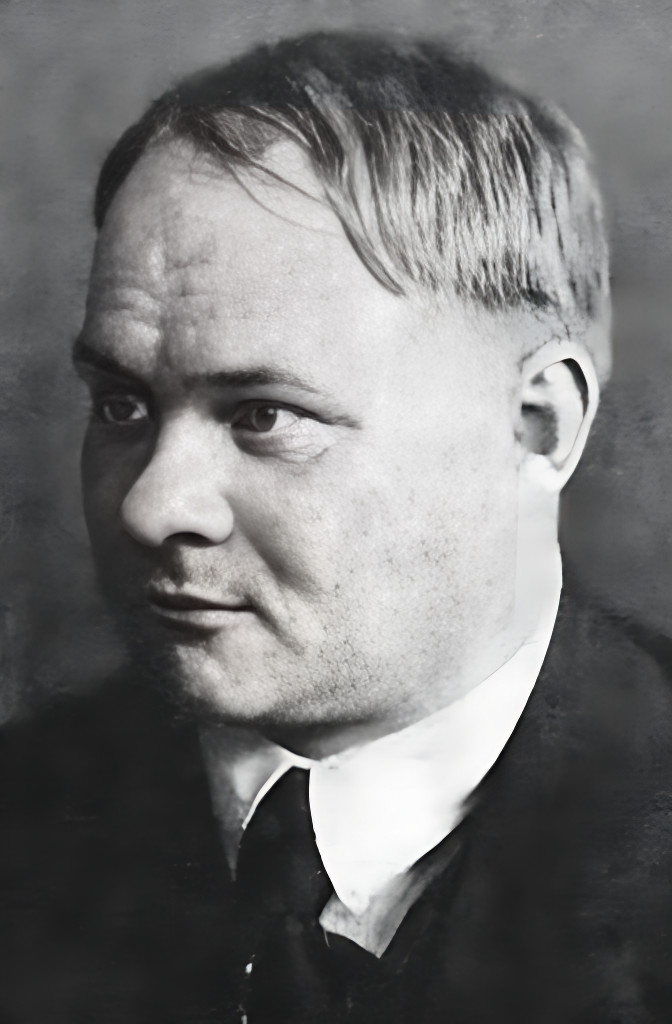Paul Zech (February 19, 1881 — September 7, 1946) was a German Expressionist writer of the first half of the twentieth century. His German translation of Jorge Icaza’s famous novel “Huasipungo” was published after his death in 1952 as “Huasi-Pungo. Ruf der Indios,” (literally, Huasipungo. Cry of the Indians). Zech’s prolific literary output included essays, poetry, plays, and translation. In 1933, having garnered criticism and opposition from Germany’s far-right, he emigrated to Buenos Aires, Argentina in the fall of 1933, where he remained in exile from the Nazis until his death in 1946. Known primarily for his translations of classic French works, almost all of his longer works, including seven novels, remained unpublished during his lifetime. These posthumous works were instrumental in finally bringing him the recognition he so richly deserved.
Awards
- In 1918, Paul Zech was awarded the Kleist Prize, Germany’s most important literary award from 1912-1933 (the prize was re-established in 1985 and is awarded annually, except between 1994 and 2000 when it was awarded biennially).
Bio
Zech had a habit of manipulating his biography at will; This is why there are multiple biographies that contain inaccuracies and even lies. This was extensively investigated by Brigitte Pohl (1977), Arnold Spitta (1978), Matías Martínez (1989), Uwe Eckardt (1996), Bert Kasties (1999), and especially Alfred Hübner.
Paul Zech was born in Briesen, West Prussia, German Empire (present day Wąbrzeźno, Poland) on February 19, 1881. He was the son of a teacher. In 1909 he debuted with “Das schwarze Revier,” a volume of poetry. In 1912 he moved from Sauerland to Berlin and from 1913 to 1920 he was co-publisher of “Das neue Pathos.” During the First World War he joined the army, but his initial enthusiasm soon faded away. In 1916 he was wounded and afterwards he had a desk job. In 1918 he received the Kleist Prize, the Weimar Republic’s highest literary award.
During the Weimar Republic he wrote under the pseudonyms Paul Robert and Timm Borah. His play “Das trunkene Schiff” (1926), a romanticized biography of Rimbaud, was successfully staged by Erwin Piscator. In 1929 he was removed from the writers guild because of plagiarism.
In 1933 he fled to Prague and Paris and then settled in Argentina. He was no friend of the Nazis and it was discovered that he had stolen 2,000 books from the city library of Berlin where he worked as an assistant librarian.
He was a co-founder of the journal Deutsche Blätter, which was published in Santiago de Chile from 1943 to 1946 and which saw itself as a voice “for a European Germany, against a German Europe.”
He died in Buenos Aires, Argentina, on September 7, 1946. His ashes were buried in Berlin in 1971.
His acclaimed German translation of Jorge Icaza’s novel “Huasipungo” was published after his death in 1952 as “Huasi-Pungo. Ruf der Indios.”
Grave location
Berlin: Dritte Schöneberger Friedhof, Stubenrauchstraße 43-45 (23-49/51 (ashes)
Translation of Ecuador’s most famous novel
In 1952, nearly 6 years after his death, Paul Zech’s German translation of Jorge Icaza‘s 1934 novel “Huasipungo” was published in Germany as “Huasi-Pungo. Ruf der Indios.” Icaza’s book, about the brutal exploitation of rural Indians by their white masters has been translated into about 40 other languages (including English by Bernard M Dulsey in 1964).
Works
A list of his entire output can be found in: Ward B. Lewis, Poetry and Exile. An Annotated Bibliography of the Works and Criticism of Paul Zech.
- Ausgewählte Werke Hrsg. […] por Bert Kasties. 5 tomos, Aquisgrán: Shaker, 1998-99.
- Die lasterhaften Balladen und Lieder des François Villon. Nachdichtung von Paul Zech. Mit einer Biographie über Villon. Múnich, dtv, 1962, ISBN 3-423-00043-0 (versión elaborada sobre la base de Die Balladen und lasterhaften Lieder des Herrn François Villon in deutscher Nachdichtung von Paul Zech, Weimar, 1931).
- Vom schwarzen Revier zur Neuen Welt – selección de poesías. 1983, ISBN 3-446-13576-6.
- Deutschland, dein Tänzer ist der Tod, una novela. Fráncfort del Meno, 1984, ISBN 3-596-25189-3.
- Michael M. irrt durch Buenos Aires. Rudolstadt, 1985.
- Von der Maas bis an die Marne. Un diario de guerra. Rudolstadt, 1986.
- Der schwarze Baal. Novellen. Editado por M. Martínez. Gotinga, 1989, ISBN 3-89244-007-7.
- Paul Zech Lesebuch. Recopilado por Wolfgang Delseit. Colonia, 2005 [Nylands Kleine Westfälische Bibliothek 12], ISBN 3-936235-13-9. edición en línea del libro.
Bilingual editions
- Yo soy una vez Yo y una vez Tú (Mal bin ich Ich und mal Du), traducido, seleccionado y prologado por Héctor A. Piccoli; Editorial Serapis, Serie traslaciones, Rosario 2009, ISBN 978-987-24892-6-7.
- Árboles junto al Río de la Plata, traducido por Héctor A. Piccoli; Editorial Serapis, Serie traslaciones, Rosario 2013, ISBN 978-987-26984-8-5. Con fotografías.
- Poemas antifascistas, traducido por Héctor A. Piccoli, Dibujos de Clément Moreau. Edición preparada por Alfred Hübner; con un prólogo de Arnold Spitta; revisión general de Pablo Ascierto. ; Editorial Serapis, Serie Campanas de palo, Rosario 2016, ISBN 978-987-3670-10-7.

